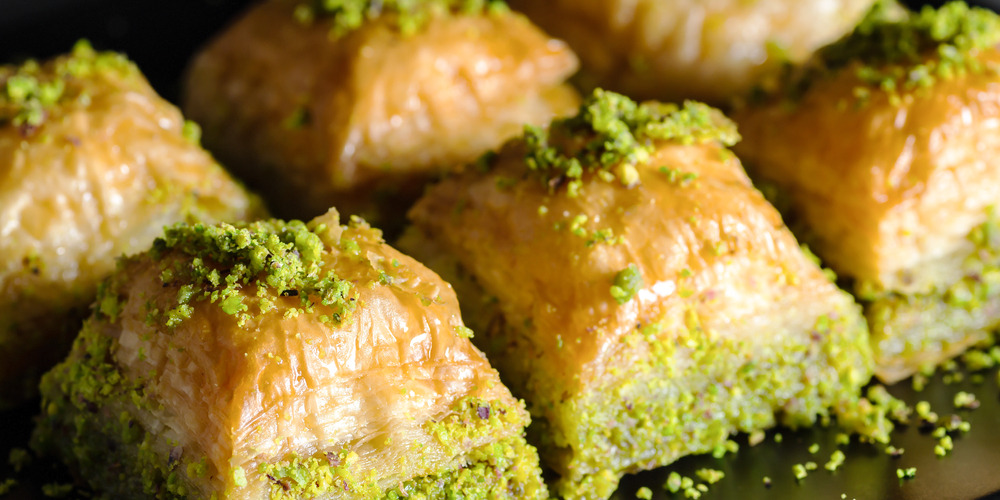Home to the biggest Baklava factory in the EU, production of the pastry has doubled and over 100 local companies have received halal certification.
Ahead of the 2022 Halal Business Forum, which will occur from October 4-5 in Zagreb, Croatia is poised to grow its halal industry. The nation with a population of 4 million, where about 1.5 % are Muslim, became a member of the European Union in 2013 and relies heavily on tourism as an economic growth driver.
In the food industry, enterprises are looking to add halal certification to their operations to strengthen global competitiveness.
“We started halal certification in 2010,” Aldin Dugonjić told Salaam Gateway. He is the CEO of the Centre for Halal Quality Certification, which has certified 105 Croatian companies in the tourism, hospitality, and retail sectors, slaughterhouses and schools.
The Ministry of Public Administration registered the organisation as the only body to conduct halal certifications authorised by the Islamic community in Croatia.
Dugonjić sees the most significant halal growth potential in the exports of food products. “Only 60% of our production is at 100% of capacity,” Dugonjić said. “So there is a lot of opportunity to increase exports, especially with the help of good investors.”
British entrepreneurs Constantine Azar and Mehmet Halim took the leap and opened New Bakery, near the capital Zagreb, in 2014. Having invested over Euro 5 million euros ($5.67 million) and moving to new premises this year allowed the company to double its hand-made baklava production capacity from 500 tonnes to 1,000 tonnes, making New Bakery the biggest baklava factory in the EU, according its owners.
Originating from the Balkans and the Middle East, baklava is a pastry dessert made of thin unleavened dough, filled with chopped nuts, and sweetened with syrup or honey.
“When we started, we didn't have a product, we didn't have a brand,” co-founder Azar told Salaam Gateway. Today, the brand is on the shelves of Mark & Spencers, Aldi, and Costco UK and US. The US, Africa and Europe are the manufacturer’s top three export regions.
“We have had distributors trying to take on the brand, and offering halal products helps,” Azar said about the reason for getting halal certified.
“We went for a promotion with Lidl, and it was for Ramadan,” Azar added, reminiscent of the beginnings. Lidl is a German international retail chain that operates over 12,000 stores across Europe and the US.
In addition to halal and kosher, the company also follows Brand Reputation through Compliance (BRC) standards. “We need to be able to trace the nut back to the field,” Azar said about the demands of this globally recognised food safety management system.
Halal hazelnuts
Hazelnuts are the specialty of Tammy, one of the three businesses that received their halal certificates during a ceremony as part of the Halal Business Forum. In September 2021, the Centre for Halal Quality Certification organised this inaugural forum, held in Zagreb.
Established in 2020, Tammy provides hazelnut processing services and produces hazelnut oil, flour and butter. The target markets include bio-cosmetics producers, bakeries, pastry shops, restaurants and pharmaceutical companies.
For the new venture, founder Ivana Babić Čortan cultivated a 3-hectare hazelnut plantation that has been in her family for three generations. The businesswoman opted for halal certification for branding reasons. “I want my products to be more recognisable in the sea of providers,” Čortan told Salaam Gateway.
Čortan had the business certified first and only then started production. “This way, I knew I wouldn't do any false steps in administration or production itself,” Čortan said. Besides halal, Tammy obtained kosher and eco-certification.
Čortan explained that producing according to standards is more challenging due to extra paperwork and costs, and more responsibilities towards consumers and state institutions. But she is convinced of the value it adds. “A certificate gives people an extra dose of security.”
In 2020, Nutella, a globally popular chocolate hazelnut based spread, was involved in a marketing misstep related to its halal status. When it announced the spread was not halal, people questioned whether the product contained haram ingredients. Nutella later apologised for the mistake, clarifying that the spread was suitable for halal consumption, and that 90% of production facilities were halal certified, the remainder in the process of being certified.
© SalaamGateway.com 2021 All Rights Reserved

